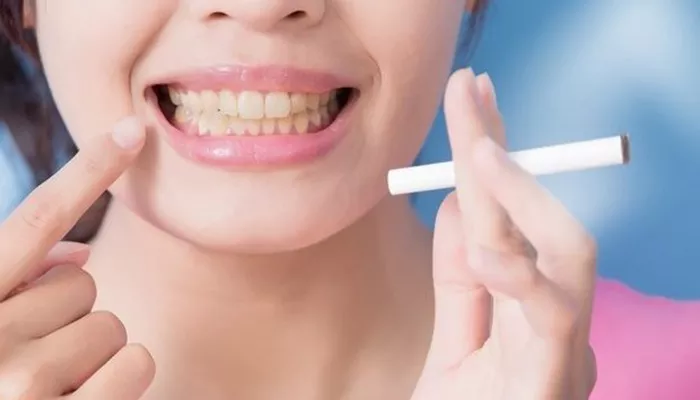Wisdom teeth removal is a common dental procedure that many individuals undergo during their late teens or early twenties. Smoking can have adverse effects on the healing process after any surgical procedure, and wisdom teeth extraction is no exception. As a dental expert, I will provide detailed information on how long you should refrain from smoking before having your wisdom teeth removed.
The Importance of Preparing for Wisdom Teeth Removal
Proper preparation before wisdom teeth extraction can make a significant difference in the healing process. Aside from avoiding smoking, there are several essential pre-operative steps to follow:
Follow Dental Surgeon’s Instructions: Your dental surgeon will provide specific instructions to prepare for the procedure.
Ensure you follow them diligently to promote a smooth surgery and recovery.
Arrange Transportation: Wisdom teeth removal is typically performed under anesthesia. Arrange for someone to drive you home after the surgery.
Fasting Before Surgery: Depending on the type of anesthesia used, you may need to fast before the surgery. Follow the fasting guidelines provided by your dental surgeon.
How Long to Avoid Smoking Before Wisdom Teeth Removal?
It is highly advisable to refrain from smoking at least 72 hours (3 days) before the scheduled wisdom teeth removal to promote a smoother healing process. Smoking can significantly impact the healing process, as the chemicals in tobacco can restrict blood flow and slow down the body’s ability to heal.
Smoking can lead to several complications during and after wisdom teeth removal, including:
Breathing difficulties during sedation: The chemicals in cigarettes can make it harder for you to breathe properly while under anesthesia.
Delayed wound healing: Smoking can slow down the healing process and increase the risk of complications.
Increased risk of dry sockets: A painful condition that occurs when the blood clot protecting the extraction site is dislodged.
Higher risk of infections: Smoking can weaken your immune system and make you more susceptible to infections.
SEE ALSO: How to Reduce Bruising After Wisdom Teeth
The Wisdom Teeth Removal Procedure
Before diving into the topic of how long to avoid smoking after wisdom teeth removal, it’s essential to understand the procedure itself and what to expect during and after the surgery.
The Surgical Process
The dental surgeon will begin by administering anesthesia to ensure you are comfortable throughout the procedure. They will then make an incision in the gum to expose the tooth and bone. If necessary, the tooth may be broken into smaller pieces to facilitate extraction. Once the tooth is removed, the site will be cleaned, and the incision will be closed with stitches.
Types of Anesthesia
There are several types of anesthesia used during wisdom teeth removal:
Local Anesthesia: This is the most common type of anesthesia used for wisdom teeth removal. It numbs the area around the tooth, ensuring you don’t feel any pain during the procedure.
Nitrous Oxide (Laughing Gas): This is a mild sedative that helps you relax during the surgery. It is administered through a mask that you breathe through your nose.
IV Sedation: In some cases, your dentist may recommend IV sedation, which involves administering medication directly into your bloodstream. This type of anesthesia puts you in a deep state of relaxation and is often used for more complex procedures.
General Anesthesia: In rare cases, wisdom teeth removal may be performed under general anesthesia, which puts you in a deep sleep.
This is typically reserved for highly complex cases or for patients who have significant dental anxiety.
What Happens If You Smoke After Wisdom Teeth Removal?
Smoking after wisdom teeth removal can lead to several complications, including:
Delayed healing: Smoking can slow down the healing process and increase the risk of complications.
Increased pain: Smoking can exacerbate pain and discomfort after the surgery.
Higher risk of infections: Smoking can weaken your immune system and make you more susceptible to infections.
Potential development of dry sockets: A painful condition that occurs when the blood clot protecting the extraction site is dislodged.
It is best to avoid smoking for at least 72 hours (3 days) after wisdom teeth removal to ensure a successful healing process.
If you accidentally smoked after the surgery, notify your dental surgeon immediately. They can provide guidance and monitor your healing progress for any potential complications.
Alternatives to Smoking During The Recovery Period
To promote a healthy healing process, consider alternative ways to manage stress, such as relaxation techniques, meditation, or engaging in enjoyable activities that don’t involve smoking. Nicotine patches can be an acceptable alternative to traditional cigarettes.
Conclusion
Refraining from smoking for at least 72 hours (3 days) before and after wisdom teeth removal is crucial for a smooth recovery. Smoking can lead to various complications, including breathing difficulties during sedation, delayed wound healing, increased risk of infections, and the potential development of dry sockets. By following your dental surgeon’s instructions and avoiding smoking during the pre- and post-operative periods, you can significantly improve your chances of a successful recovery.
If you regularly use marijuana, it is essential to inform your dentist. While marijuana may help you relax, it can have adverse effects when combined with anesthesia, potentially leading to low blood pressure and poor heart function.

